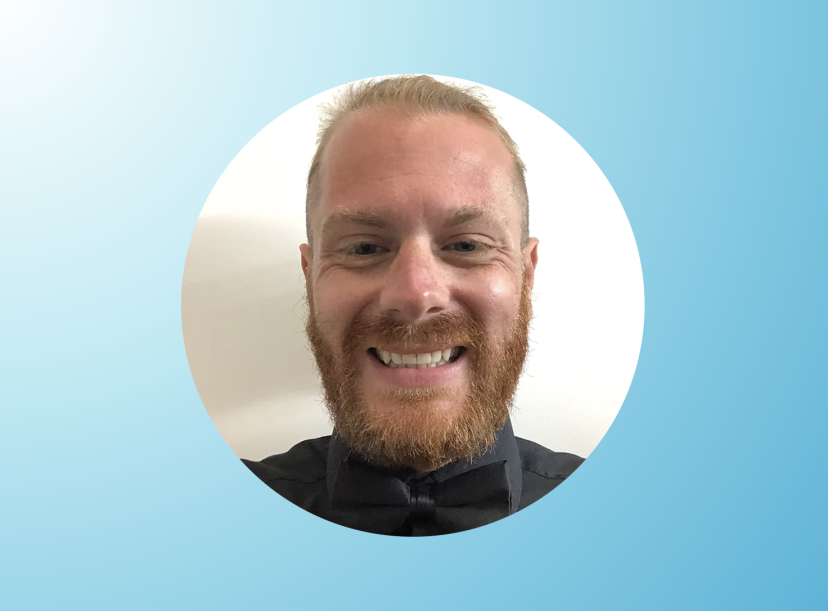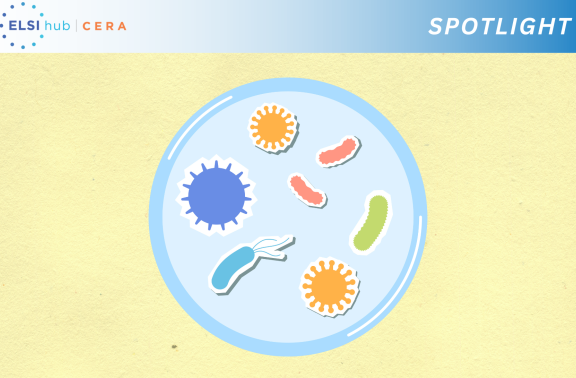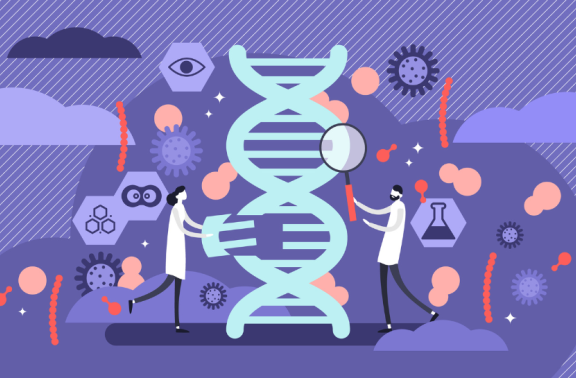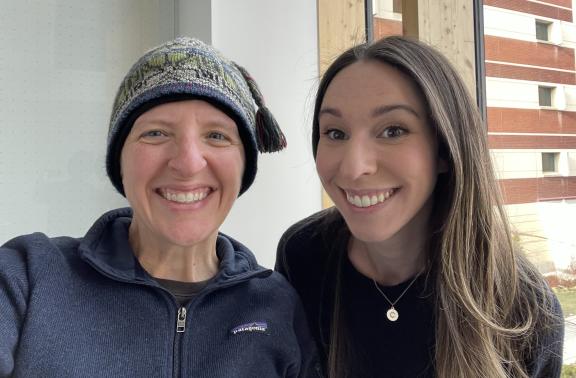
Cluster Hire for a New Sociogenomics Initiative at Purdue
We spoke with new CERA Advisory Board member, Robbee Wedow, Ph.D., about his work and a new initiative at Purdue University that will create a cross-disciplinary home for sociogenomics by recruiting a world-leading faculty cohort. Dr. Wedow is a professor of sociology and data science at Purdue University, of medical and molecular genetics at the Indiana University School of Medicine, and an affiliate of the Broad Institute of MIT and Harvard.
CERA: Could you tell us more about your vision for the sociogenomics initiative at Purdue? What kinds of opportunities are there for ELSI scholars?
Dr. Wedow: This initiative is a joint endeavor between the College of Liberal Arts and the College of Science at Purdue. Our vision is to give sociogenomics, and the many disciplines that this subfield requires, a home. We are incredibly excited about the chance to build a world-leading cohort of scholars in social science disciplines and behavioral genetics, including those in computer science, translational biology, and statistics. In addition—because it is of the utmost importance to the university, and to me, that we take ethics and communication seriously—we are also interested in hiring bioethicists and ELSI scholars to take part in this initiative.
We are beginning the effort with a strategic investment from the university to hire approximately 15 tenure-track faculty at the ranks of assistant, associate, and full professor. The initiative also has plenty of resources including pay for students, postdocs, startup funds, etc. We urge those who are interested to apply here. The review of applications begins on October 9th, and the application will stay open until the positions are filled. This is an incredibly flexible hiring initiative with all options on the negotiating table. Please do not hesitate to reach out to me at [email protected] with any questions at all.
CERA: Your work, which is situated at the intersection of sociology, demography, and computational genetics, explores how human genetics interacts with the environment and social forces. Could you talk about your approach to sociogenomics and how you see its utility?
Dr. Wedow: My view of sociogenomics is nuanced. When it comes to social science outcomes, I don’t necessarily think that the newest polygenic score for educational attainment or same-sex sexual behavior is going to unlock a deeper understanding of social stratification or sexuality. I’m not even really interested in biology per se. Instead, I think that genetic data represents an important new step in a larger data revolution in the social sciences. These data can become one important tool that we use to narrow in on the importance of the parenting environment, geographic location, neighborhoods, social policies, or other environmental factors in shaping our life circumstances. Genetic data is enormous, and with this enormity comes the chance to use data that is far better powered than data we’ve seen before to do better social science work. So, for me, this endeavor is not really about biology or building a better genetic predictor of some outcome, but instead is about leveraging powerful new data to better answer questions in the social sciences.
CERA: You are dedicated to clearly communicating your own research fundings to the public and recently called for scientists to consider the misappropriation of genetic research in Scientific American. Why is this important? Do you see any roles for ELSI researchers in this endeavor?
Dr. Wedow: A dark and unfortunate history of eugenics accompanies sociogenomics inquiry. Given this dark history, and my role as a sociologist working within this interdisciplinary space, I think that it is incumbent upon sociogenomicists and behavioral geneticists to not only account for this history, but also to apply the highest ethical and scientific communication standards to the work that we do. This is no joke or no half-formed afterthought in my mind; it is at least equal to, if not even more important than the scientific work itself. We must think carefully about how bad actors might misappropriate our work and work ardently to ensure that when this happens, we have a reaction and a voice that is louder than those suggesting that there is, for instance, any genetic differences in cognitive performance between racial, ethnic, or genetic ancestral groups of people. I think there is a critical role for ELSI researchers within sociogenomics. I also can’t imagine doing any of my work without the careful and invaluable eyes and expertise of the ELSI researchers working with me as well as other community stakeholders that are jointly engaged in the work that I and others in this space do.
CERA: You are part of a National Science Foundation effort to change the high school biology curriculum so that it more accurately describes human variation. Could you tell us a little bit more about this project and what the hope is for the revised curriculum?
Dr. Wedow: That’s right! I am working with Brian Donovan, Dennis Lee, and an incredible team of researchers and curriculum developers at BSCS Science Learning in Colorado to write a genetics curriculum that reflects a more accurate (and therefore less deterministic) explanation of human genetic variation. In my own work, I’ve really struggled with how difficult genetics research is to communicate to lay audiences, and I think this is the case, perhaps in part, because genetics education has missed the mark, especially in the United States. Rather than focusing on common, complex, polygenic human genetic variation, most genetics education in high school focuses on Mendelian patterns of inheritance. The result has been an incorrect understanding of genetics as deterministic. This has led to scientifically inaccurate, and often racist, interpretations of genetics research and data. This focus on determinism has also led to beliefs in genetic essentialism, or the belief that people of the same race share genes that make them physically, cognitively, and behaviorally uniform, and different from other races. Our large-scale National Science Foundation grant is aimed at exploring how to reduce racial prejudice among high school aged students through genetics education. In this grant, we’re refining the Humane Genetic Literacy (HGL) education intervention, which is designed to reduce belief in genetic essentialism as well as influence how students grasp and apply genetic evidence to refute genetic essentialist arguments. By the end of recruitment, we’re hoping to have trained about 120 teachers to use our intervention and reach over 14,400 high school students across the U.S., in at least 33 states. This work and past work in this field is the brainchild of Brian Donovan, whose work in this important area of inquiry is really just incredible.
CERA: Would you like to share anything else with the ELSI community?
Dr. Wedow: I just wish to simply thank the ELSI research community for what has been an incredibly important and exciting period of collaboration in my career, especially over the last few years. I often yearned in my previous work to have an outlet for tackling what are, I think, some of the most important and pressing ethical questions of the modern era. I’ve been so inspired by the community of ELSI researchers I’ve encountered. These researchers have not only embraced collaborations with me, but also challenged me to think and reimagine the place of the scientist in conversations about ethics or in communicating work clearly to diverse audiences. I have a lot of faith in the current landscape of genetics research, and that faith is driven by the incredible efforts I see in members of the ELSI research community. I’m looking forward to even more engaged collaborations moving forward!



